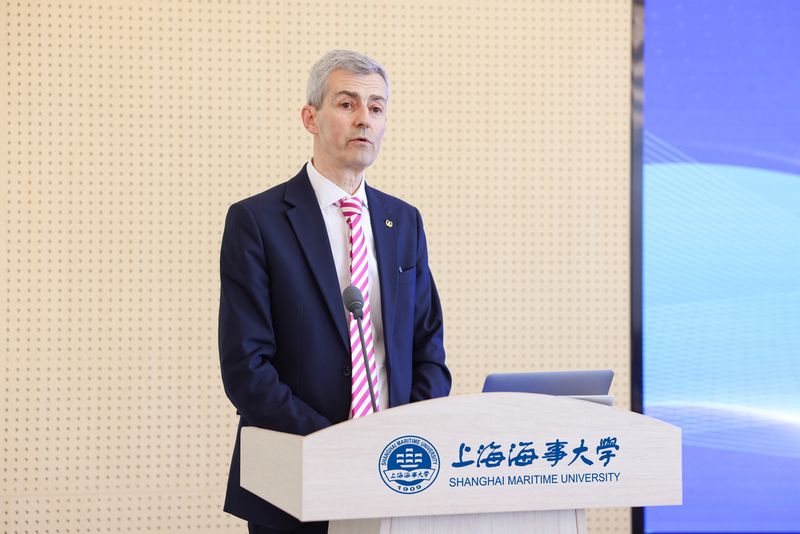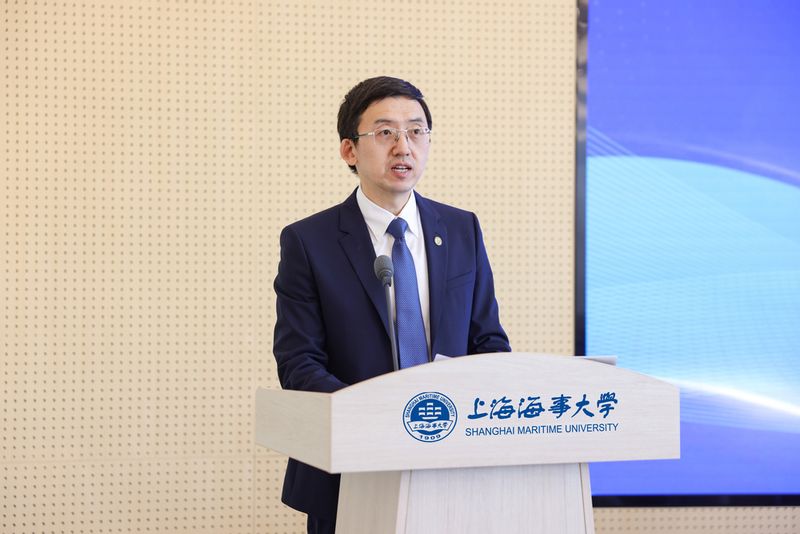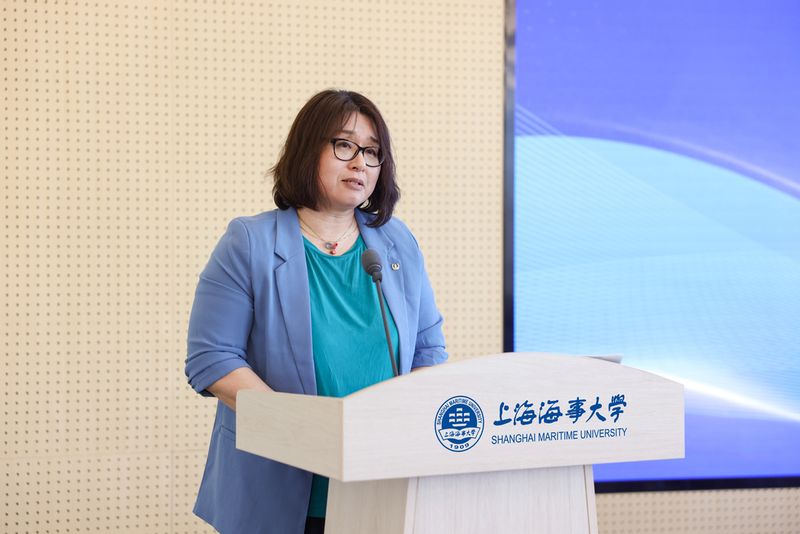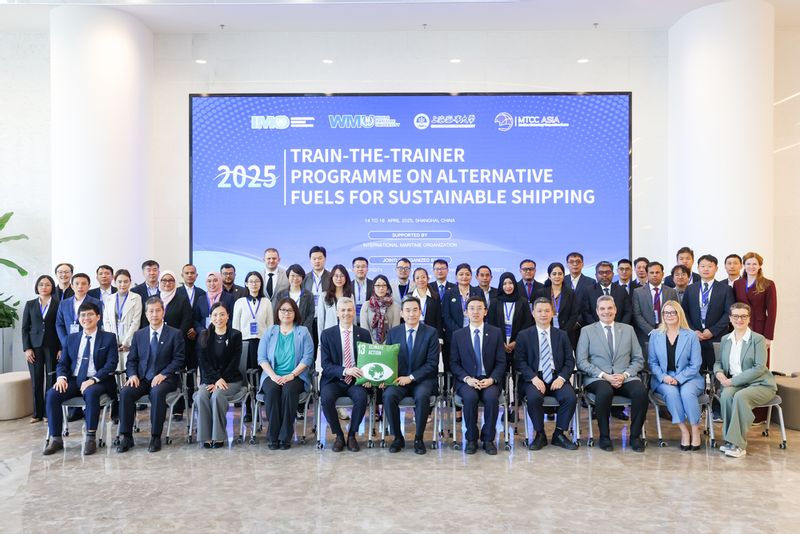On April 14th, the 2025 Train-the-Trainer Programme on Alternative Fuels for Sustainable Shipping, supported by International Maritime Organization (IMO) and jointly organized by World Maritime University (WMU), Shanghai Maritime University (SMU) and Maritime Technology Cooperation Centre, Asia (MTCC Asia), was commenced at Shanghai Maritime University. Attendees at the opening ceremony included President Chu Beiping, Vice President Yin Ming, WMU professors Aykut I. Ölcer and Momoko Kitada, as well as 35 trainees from maritime authorities, industry organizations, and port and shipping enterprises across 14 countries. The opening ceremony was hosted by heads of International Office and International Education College of SMU.
Chu Beiping expressed the gratitude for IMO’s long-term support and emphasized that decarbonization is critical for the shipping industry. IMO’s emission reduction measures will have a revolutionary impact on the global economy and shipping industry. Seafarers play a key role in carbon reduction, and enhancing their competency in GHG emission reduction should be highly prioritized to ensure the safe application of new technologies and alternative fuels. He stated that SMU will actively collaborate with WMU to promote more professional, international and practical training programs, contributing to the sustainable development of the global shipping industry.
Aykut I. Ölcer pointed out that this programme focuses on strengthening global cooperation to jointly address challenges and promote the sustainable development of organizational structures in the maritime sector. He emphasized that while technology is core, it alone cannot solve all problems. The globalization of maritime affairs presents significant opportunities and challenges for the industry, and global strategies and transnational cooperation are fundamental countermeasures. The shipping industry urgently needs to strengthen transnational collaboration and deep integration with the global governance system.
Yin Ming extended a warm welcome to representatives from WMU and all the trainees, introducing SMU’s efforts to advance ship energy efficiency technology transition and implement IMO’s GHG reduction strategies through platforms of MTCC-Asia and the International Maritime Lecturers Association (IMLA).
Momoko Kitada thanked SMU for its meticulous preparation and introduced the course design and training model. She noted that while alternative fuels are developing rapidly, there are still gaps in technology, regulations, and seafarer training within the industry.
This programme is IMO's first global training program targeting seafarers' GHG emission reduction competency. Focusing on the application of clean energy in the shipping industry, it aims to ensure that seafarers master the safe operation and environmental advantages of new fuels through knowledge transfer, teaching skill enhancement, and leadership development. By sharing knowledge and promoting cooperation, it will drive the green transformation of the shipping industry, provide talent support for global shipping emission reduction goals, accelerate the formation of competency standards for seafarers in GHG emission reduction, and comprehensively promote various GHG emission reduction competency training for seafarers worldwide.






